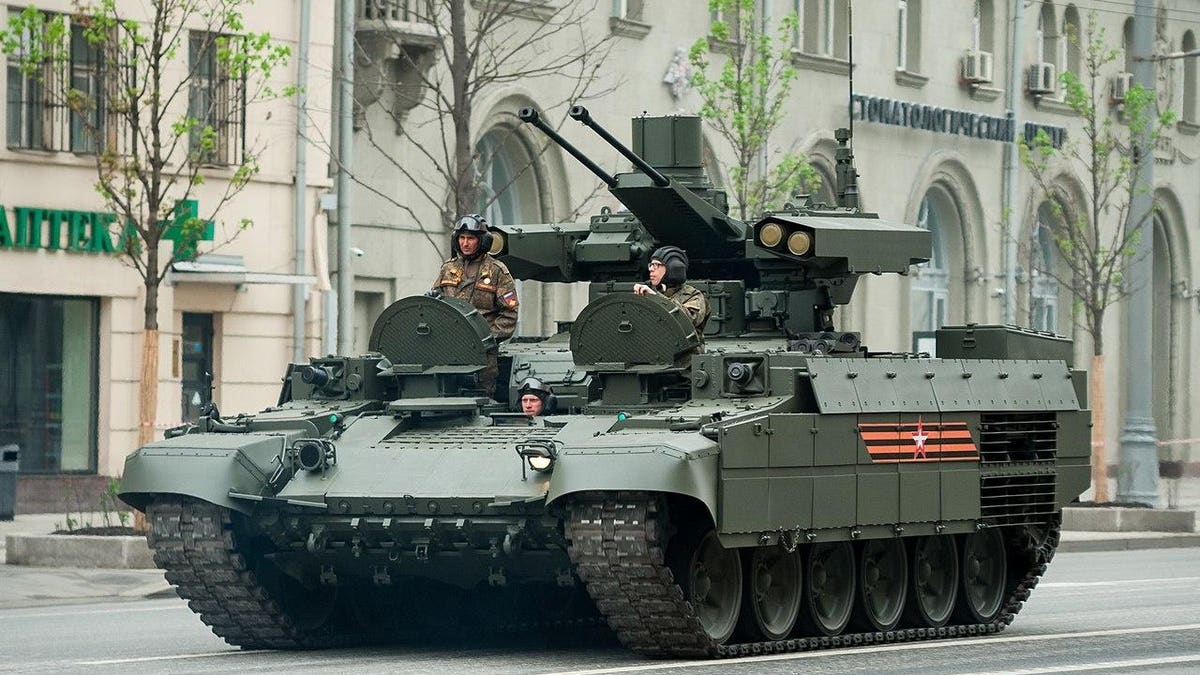The Russian army’s three-person, 53-ton BMPT Terminator tank support vehicle combines the thickly-armored hull of a T-72 tank with an unmanned turret packing twin 30-millimeter autocannons and launchers for four anti-tank missiles.
The Terminator is tough enough to assault enemy positions alongside the tanks and nimble enough—with its fast-firing, high-elevation autocannons—to do battle with fleet-footed enemy infantry.
Russian arms-exporter Rosoboronexport even claims the BMPT can engage targets “in the air,” thanks to its high rate of fire and two separate optical sensors—one for each for the commander and gunner.
The claim rings a bit hollow after Saturday. That’s when the Ukrainian special force’s Group Alpha posted a video depicting the group’s explosives-laden first-person-view racing drones chasing down, in eastern Ukraine’s Donetsk Oblast, one of the nine Terminators the Russian army still has left.
The Russian army lost its first BMPT, out of 10 Uralvagonzavod built for the service, in a precision artillery strike in eastern Ukraine in February. It may have lost a second over the weekend after several speedy, grenade-clutching FPV drones struck the Terminator in Donetsk.
If not irreparably damaged, the BMPT at least was immobilized by the drone strikes. When a T-80 tank arrived to tow away the damaged Terminator, Ukrainian drones struck the tank, too.
Inexpensive FPV drones, which might cost just $5,000 apiece, are some of the best and most cost-effective anti-vehicle weapons of Russia’s 18-month wider war on Ukraine. Both sides have deployed the speedy drones—which an operator controls via a virtual-reality headset—to damage or destroy hundreds of the enemy’s armored vehicles.
“FPV drones … are exactly the kind of opportunity we need to take to lower the risks of a Ukrainian soldier losing their life,” Ukrainian brigadier general Yurii Shchyhol told Forbes contributor Sebastien Roblin.
It’s not impossible to shoot down a two- or three-pound FPV drone. But a racing drone’s small size, high speed—80 miles per hour or faster—and potential for swarming represents a challenging air-defense problem.
It’s no wonder that the Terminator crew couldn’t prevent the weekend FPV strikes: while the operators of a dedicated air-defense vehicle might have a radar to cue their guns, the crew of a Terminator has to see an incoming drone at distance to have any chance of shooting it down.
The BMPT is a lot of things. An assault vehicle. An infantry-killer. But it’s not an air-defense vehicle. And that swarm of $5,000 drones just proved it.
Read the full article here





